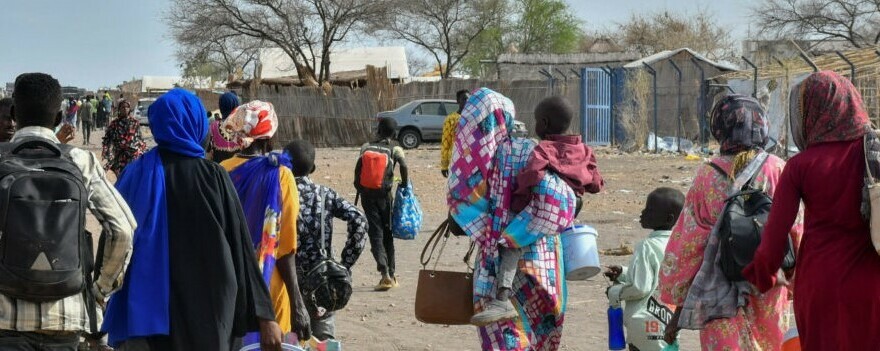The humanitarian community in South Sudan is calling for urgent funding to ensure continued support for onward transportation for people fleeing the Sudan conflict to South Sudan.
According to a Wednesday press statement from the UN’s Office for the Coordination of Humanitarian Affairs (OCHA), since the outbreak of hostilities in Sudan on 15 April, over 193,000 people have crossed into South Sudan.
“In June 2023, the number of new arrivals surged significantly, with approximately 15,000 individuals arriving from Sudan every week,” the statement read. “Over 70 percent of the arrivals enter South Sudan through Renk’s Wunthow border entry point, of whom the vast majority are South Sudanese nationals. With no end to the Sudan conflict in sight, it is expected that the number of people seeking refuge in South Sudan will continue to rise in the coming period.”
Peter Van der Auweraert, the Acting Humanitarian Coordinator for South Sudan, said many of those arriving in South Sudan are increasingly vulnerable with no financial resources to continue their journey inside the country.
“Until now, National and State-level Authorities together with the humanitarian community have been able to provide onward transportation assistance to those without means so that they can reach their final destinations by road, river, or air,” he said. “Funds are, however, dwindling rapidly and without new funding, humanitarian agencies will be forced to halt transportation assistance in two weeks’ time. Funding shortfalls have already forced the National Authorities to cease assistance.”
According to the UN, should the required funding not be secured, the consequences will be extremely severe, impacting the well-being and safety of returnees and refugees from Sudan as well as of the South Sudanese living in the affected border areas.
“It is quite straightforward, everyday support for onward transportation is unavailable, hundreds more will become stranded in and around border towns like Renk, with already overstretched humanitarian services becoming overwhelmed within a matter of days, not weeks,” warned Van der Auweraert. “Unless we find a way to continue supporting onward transportation, we will soon be in a situation whereby the living conditions for people arriving become ever more dire and the occurrence of tensions and conflict over scarce resources ever more likely.”
According to the statement, the humanitarian partners in South Sudan urgently require US$26.4 million to continue providing transportation support until the end of the year.
“South Sudan needs additional support from international donors, and that the National Authorities restart their support for onward transportation,” the Acting Humanitarian Coordinator added. “Only a joint effort will avoid the humanitarian catastrophe we are all afraid of.”
The UN estimates that 9.4 million people, 76 per cent of South Sudan’s population, are projected to need humanitarian and or protection assistance in 2023.
“The 2023 Humanitarian Response Plan requires US$1.7 billion to reach 6.8 million of the most vulnerable people with urgent vital support,” the statement said. “As of 25 July 2023, only 39.4 per cent of the 2023 Humanitarian Response Plan is funded.”
According to the UN, South Sudan continues to be the most violent context for aid workers. Three aid workers lost their lives while on duty since the beginning of 2023. Across the country, aid workers, mostly national humanitarian workers, are affected by the impact of armed violence, bureaucratic impediments and targeted violence.




